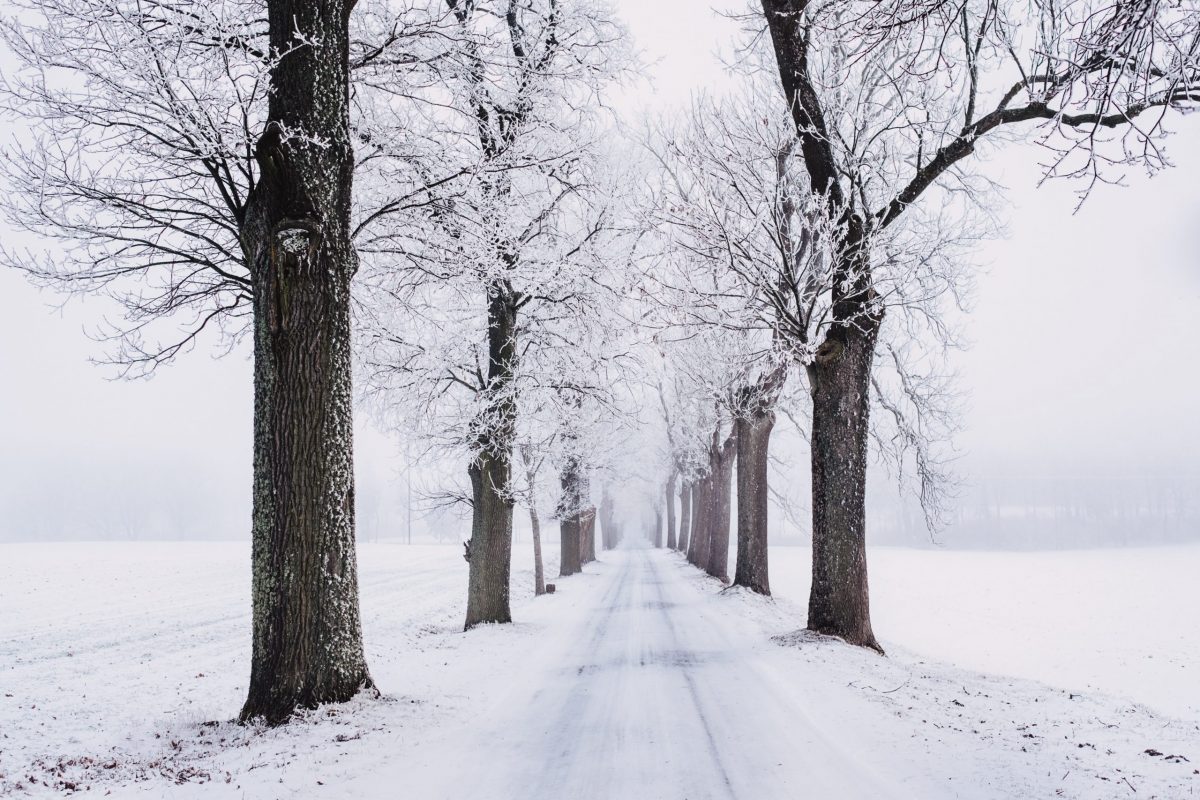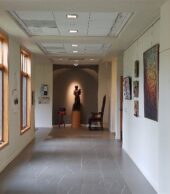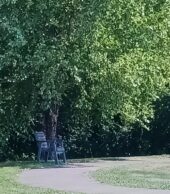From time to time the Benedictine Center invites contributors to share their spiritual writing as it results from experiences at the Benedictine Center. This example of story as a way of considering our life journey was written by Liz Jaeger. She wrote this piece during a series called "Writing Our Way to Understanding.
Winter Reflections
January in Minnesota often brings some of the coldest and windiest days of the year. Worries and challenges are amplified by frigid temperatures, and warmth can seem beyond reach. Yet, January also can be a time of hope as the sun fills the sky with the promise of spring ahead.
On a recent, icy day, cardinals huddled in the bush outside my window bringing recollections of my father who faithfully fed the birds each winter. An active man at 91, my father had religiously avoided doctors, preferring his own conclusions with prescriptions of libations, long walks outdoors, and tending his sizable vegetable garden. And with that resolve it seemed as if he would live forever. When he was diagnosed with terminal cancer, given two months to live, and moved to a hospice, he fought his fate, leaning into Dylan Thomas’ poem that urged his own father, “Do not go gentle into that good night.” At every obstacle my father pushed back, even refusing to use a walker as his legs weakened. When the nurses insisted, he shoved it far away from himself, sauntered up to it, and then pushed it away again as he covered the distance to the chapel to pray.
The darkness of December increased with the shortening daylight hours, and the deepening snow magnified the weight of his situation. It became more difficult for my father to eat, yet he gladly joined us on Christmas Day for our annual brunch. As he had done so often in the past, he accompanied the Christmas carols on his well-worn sunburst mandolin, and he joined the card games, but this time, he hid no cards up his sleeve. Cameras flashed as we tried to capture his spirit behind his gaunt face. In the late afternoon, he stretched out on a couch and covered himself with an afghan, head to toe, as if he were imaging what it would be like after his death. And we quietly wondered the same thing.
The bitter cold of the new year began my father’s growing acceptance of a life that was rapidly fading. He began to hold the walker as he shuffled to the chapel, and there seemed to be an increasing sense of peace in his heart. Visits by his dead brothers were met without fear; indeed, they seemed to bring as much comfort as the whirlpool baths that were a soothing wonder to him. When he had energy, we prodded his memory and carefully jotted his words on yellow legal pads to share later with our children. We were anxious to capture the missing details of his immigrant family squeezed into the grey house on Matilda Street, of his time riding the rails, of performing in corner bars, of hijinks in a blizzard that ended in a ditch, and we listened with rapt attention. With such an audience, his stories became elaborate, sometimes fabricated, as he basked in the spotlight. Occasionally, though, he would glance at the corner of the room near the window, and we knew he was also speaking to others we could not see. Perhaps they were smiling at his tales, too.
Those moments were a gift of time to say goodbye, and just as important, they were a gift of seeing my father transform from a defiant state to one of acceptance of the life to come. The sunshine seemed to mark many of those final days, and that somehow eased our aching hearts, enabling us to move gradually from deep sadness to shared laughter and sweet memories. And when we buried him in January on the coldest day of the year with the sun shining brightly, we sang his favorite song “You are my Sunshine” and smiled. He would have liked that.
I smile again now, marveling at the power of January with its increasing minutes of daylight and the sun’s growing intensity. The snow sparkles brighter, birds sing out with stronger voices, and hearts are lifted from the heaviness of darker days. Easier to see are the things that are worthy of gratitude – the gift of time with people we love and the promise of the warmer days ahead.

Learn more about Art & Spirituality at the Benedictine Center.






